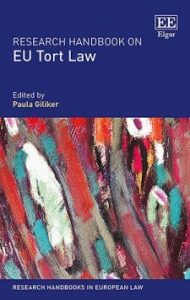By Prof Paula Giliker, Professor of Comparative Law (University of Bristol Law School)
 In Various Claimants v Catholic Child Welfare Society (CCWS) [2012] UKSC 56, Lord Phillips famously stated that “The law of vicarious liability is on the move.” This leading case also made it clear that two elements have to be shown before one person can be made vicariously liable for the torts committed by another:
In Various Claimants v Catholic Child Welfare Society (CCWS) [2012] UKSC 56, Lord Phillips famously stated that “The law of vicarious liability is on the move.” This leading case also made it clear that two elements have to be shown before one person can be made vicariously liable for the torts committed by another:
- a relationship between the two persons which makes it proper for the law to make the one pay for the fault of the other; and
- a connection between that relationship and the tortfeasor’s wrongdoing.
Later cases such as Cox v Ministry of Justice [2016] UKSC 10 and Armes v Nottinghamshire CC [2017] UKSC 60 have shown that the relationship, while primarily that of employer and employee, can extend to relationships akin to employment, including the relationship between a priest and his bishop[1] and a local authority and the foster parents to whom it entrusts children in care. The Supreme Court in Mohamud v Wm Morrison Supermarkets Plc [2016] UKSC 11 also broadened the “connection” test to impose vicarious liability for torts which were connected to the field of activities of the employee, and where there was a sufficient connection between the position in which the employee was employed and his wrongful conduct to make it right for the employer to be held liable. (more…)







